Posted by Clark Kent Without Glasses in Movies, Opinion | 1 Comment
A look back at Christopher Nolan’s Batman trilogy
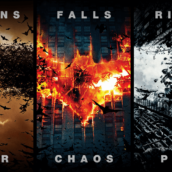
If you take a look at some of my earlier articles, you might get the impression that I dislike Christopher Nolan’s films because of my criticisms of The Dark Knight. This is certainly not the case. I do like Christopher Nolan’s work, to some extent. Well, I have an ambiguous attitude towards it. In this article, I want to talk about the entire Batman Trilogy.
I love the fact that his films have original and complex storylines, that they have their own style, that they manage to be personal blockbusters and that they convey real, serious themes. They are also all exceptionally well-made when it comes to acting and production value. Call me old-fashioned (please do, because I am) but I also really appreciate how Nolan manages to impress audiences without any recourse to profanity, nudity or violence (really, it’s remarkable how little blood there is to see in his action scenes).
On the other hand, what I dislike about a lot of Nolan’s work is what I perceive to be an inconsistent tone in visuals and dialogue, overly convoluted plotlines, terrible pacing, a self-important attitude and a lack of imagination and atmosphere.
In the end, the positives outweigh the negatives for me because at least Nolan makes an attempt to offer something of value. His movies are clearly about big themes like morality, society and what it means to be human. I may not always agree with what he’s trying to say, but I love that he actually is trying to say something meaningful in his big-budget blockbusters.
The Dark Knight Trilogy
Over the past few days, my wife and I re-watched the entire Dark Knight Trilogy as it has come to be called. It was the first time I watched all three movies back-to-back. Afterwards, I felt compelled to write about my final feelings on this trilogy.
Much like Star Wars, I think Batman means different things to different people. We all have our ideal version of Batman in our minds. To me, the best version that I have seen to date are the first two seasons of the animated series. Those cartoon episodes had everything I loved about Batman: the dark, gothic atmosphere, the unique and original villains, but also the subtler character stuff, the emotional connections and the uplifting ideas that are inherent to the material.
Batman Begins
![Title: BATMAN BEGINS ¥ Pers: BALE, CHRISTIAN ¥ Year: 2005 ¥ Dir: NOLAN, CHRISTOPHER ¥ Ref: BAT067AT ¥ Credit: [ THE KOBAL COLLECTION / WARNER BROS. / JAMES, DAVID ]](https://www.geeksfromouterspace.com/wp-content/uploads/2017/01/begins.jpg?w=593)
Released in 2005, Batman Begins actually comes pretty close to the tone of the animated series and it’s my favourite out of all the Batman movies, including Tim Burton’s work (I haven’t seen Batman vs. Superman yet but I don’t expect much of it).
Batman Begins was all about the idea of Batman. It was an origin story, but it also delved into the psychology of Bruce Wayne and the Jungian themes behind the whole Batman persona. Besides that, it was a well-paced, well-told story with a clear identity: while serious and gloomy, it remained firmly in comic book territory. It felt like a modern myth, which is what superhero stories ultimately are.
My only gripe with Batman Begins is that it tried to be realistic. Batman is inherently not a realistic character, and the world he inhabits is not realistic either. It’s ultimately a fantasy setting with larger than life heroes and villains, but Christopher Nolan seemed to want to shy away from that. Fortunately, I think he actually found a decent middle ground. Batman Begins presented Gotham City in grim hues of sepia, complete with mysterious fog and rain, all of which helped to set something of a gothic atmosphere (albeit in a realistic way). In addition, the plotline involved hallucinatory drugs, which gave the filmmakers an excuse to conjure supernatural creatures on the screen without actually being fantasy per se.
Batman Begins had a wonderfully balanced tone: it explored moral philosophy in an accessible way while still allowing for the boyish sense of wonder and adventure that comes with the comic book territory. It was also a very focused film: the story was about Batman, and his entry into Gotham City was both mysterious and impressive, because there had never been anything like him before: a mythical figure suddenly appearing in the midst of the modern world to wreak havoc on the criminal underworld. The film had a normal running time and a suitably over-the-top plot. It was a superb adventure movie and it felt like Batman to me. I really only have good things to say about Batman Begins. In my opinion it’s the best movie of the three.
The Dark Knight
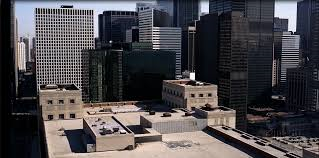
Whatever popular opinion may dictate, I maintain that The Dark Knight was a massive disappointment and an unfortunate deviation from the path set by Batman Begins. In fact, the very first shot of the film was a bit of a let-down: a helicopter view of the skyscrapers of Gotham in bright daylight, looking terribly modern and ordinary. At the snap of a finger, the atmosphere so carefully created in the first instalment was just gone, and it never returned in the entire trilogy. Nolan had clearly decided to move even further in the ‘realistic’ direction, and that meant Gotham had to look just like any other metropolis. Suddenly, Batman didn’t inhabit a slightly different, more gothic version of our world, but he actually lived in ours, and that’s where things started to go wrong. You see, I don’t think you can take characters like Batman, Scarecrow, Two-Face and the Joker and try to put them in an entirely realistic context. There is an inherent silliness to all of these comic book figures, which works perfectly when you see them in their natural environment: that strange fantasy world where villains can come up with the type of insane plans we’ve come to expect from the Joker, and where heroes can suddenly turn up out of nowhere and then disappear again into the shadows. Within the fantasy world of comic books, the adventures of Batman make sense. In the real world, they don’t. So why did Nolan insist on trying to put Batman in the real world?
The first half hour of the film felt like a deliberate attempt to suck out the atmosphere that Batman Begins had built up. Bruce Wayne’s beautiful mansion was exchanged for a cold modern penthouse. The Batcave was ditched in favour of a brightly lit, mostly empty concrete bunker.
The tone of the film became, for lack of a better word, mundane. Whereas Batman Begins had Tom Wilkinson playing a mobster in typical 1930’s Al Capone-style, adding to the naïve charm of the setting, The Dark Knight just uses your average ‘realistic’ criminals. Where Batman Begins focused on the hero’s journey and spent a lot of time on spiritual and psychological themes, The Dark Knight devotes that time to social commentary and talk of trials, guns, money and jurisdiction.
While the plot was praised for its complexity, it’s absolutely full of holes, as I have pointed out in a previous article. Besides all the problems with the Harvey Dent storyline, there is also the ridiculousness of the Joker’s schemes. In a real comic book movie like Captain America: The First Avenger, I would never have been bothered by this, but in Nolan’s ‘realistic’ Gotham, it became very jarring to me how the Joker managed to plant bombs everywhere, hide detonators, leave calling cards and plan twenty steps ahead of everyone else all on his own without any real resources to speak of. He became less of an anarchic psychopath and more of a chaotic evil sorcerer from a D&D adventure. Absolutely nothing was impossible for him, and no matter what happened, it was always part of the Joker’s plan.
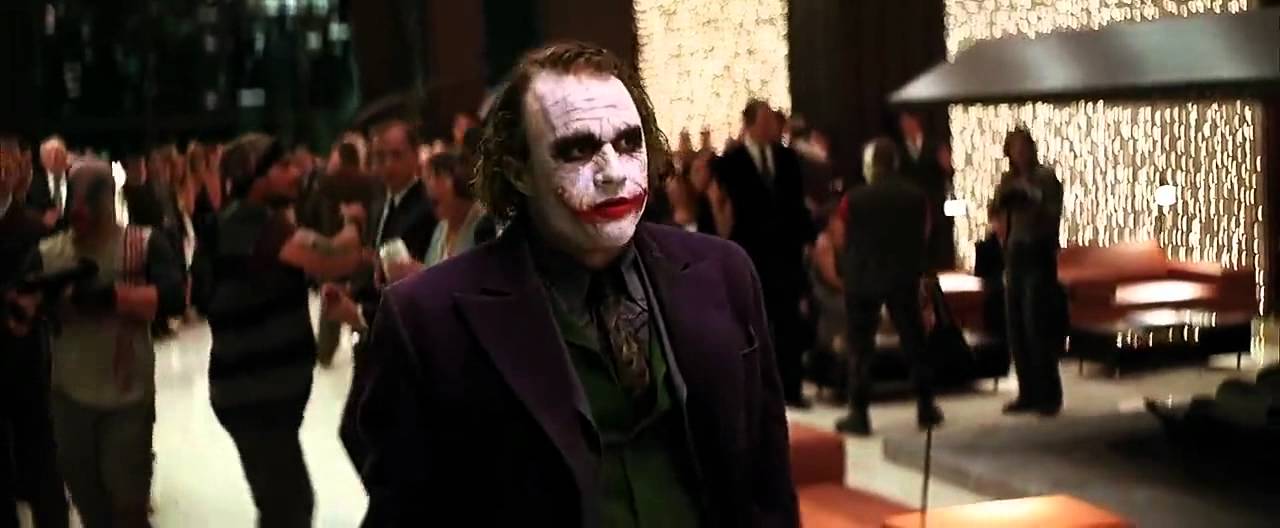
And then there is the ending. Oh, boy, that ending… What happened there? I’ve previously stated how Harvey Dent’s transformation into Two-Face made absolutely zero sense, but how the movie played out his part in the story is also kind of pathetic. You don’t set up the rise of an iconic Batman villain who has featured in countless comic books, only to kill him off after less than ten minutes of screen time. I am truly surprised that there were apparently very few die-hard Batman fans who were annoyed at this. More importantly, though, what Batman and commissioner Gordon decided to do at the end of the movie didn’t make sense either. There was really no need for Batman to take the blame for Dent’s actions.
First of all, the movie kept telling us that Dent was Gotham’s white knight and that everyone looked up to him as the pure-hearted hero whereas Batman was distrusted, but it never made us feel that. Given the choice between a competent district attorney and a mysterious dark knight who goes straight to the criminal underworld and personally beats the crap out of it, who do you think the average citizen will prefer? Of course they would love Batman much more: his mystery, his boldness, his willingness to do the things that nobody else would do… This is precisely what people admire, much more than some politician who promises to fix it all by the book. So I never believed that the people of Gotham would have been unable to handle Dent’s fall from grace.
“He was the best of us,” Batman says. Was he? I never saw any evidence of that. To me, Batman was always clearly the best of them. Not only was he obviously the coolest, he was also shown to be the most morally upright throughout the movie. Unlike pre-crispy Harvey, he never let a coin toss decide the fate of a man’s life. I think Batman’s fall from grace was much worse for Gotham’s morale than Dent’s. Think of all the little boys who would imitate Batman on the playground and how truly devastated they must have been when they were told that their hero was actually a murderous psycho. If our friends were dead set on lying anyway, why not blame Harvey’s murders on the Joker? At least that would have been a little bit true.
And finally, what kind of terrible moral message did they end this movie on? “Sometimes people don’t need the truth, sometimes they deserve something better”. Pardon my French, but that really is bullshit.
There are so many problems with this film that I’m still baffled to this day at the exorbitant amounts of praise it received. Sure, Heath Ledger’s performance as the Joker was good, but it wasn’t that amazing either. Besides, the acting in Nolan’s films is always good, but that doesn’t mean the storytelling is. There is one scene I really liked, though. The ferry scene. That was a great depiction of a moral dilemma and it was nice to see a ray of light in this very dark movie.
The Dark Knight Rises
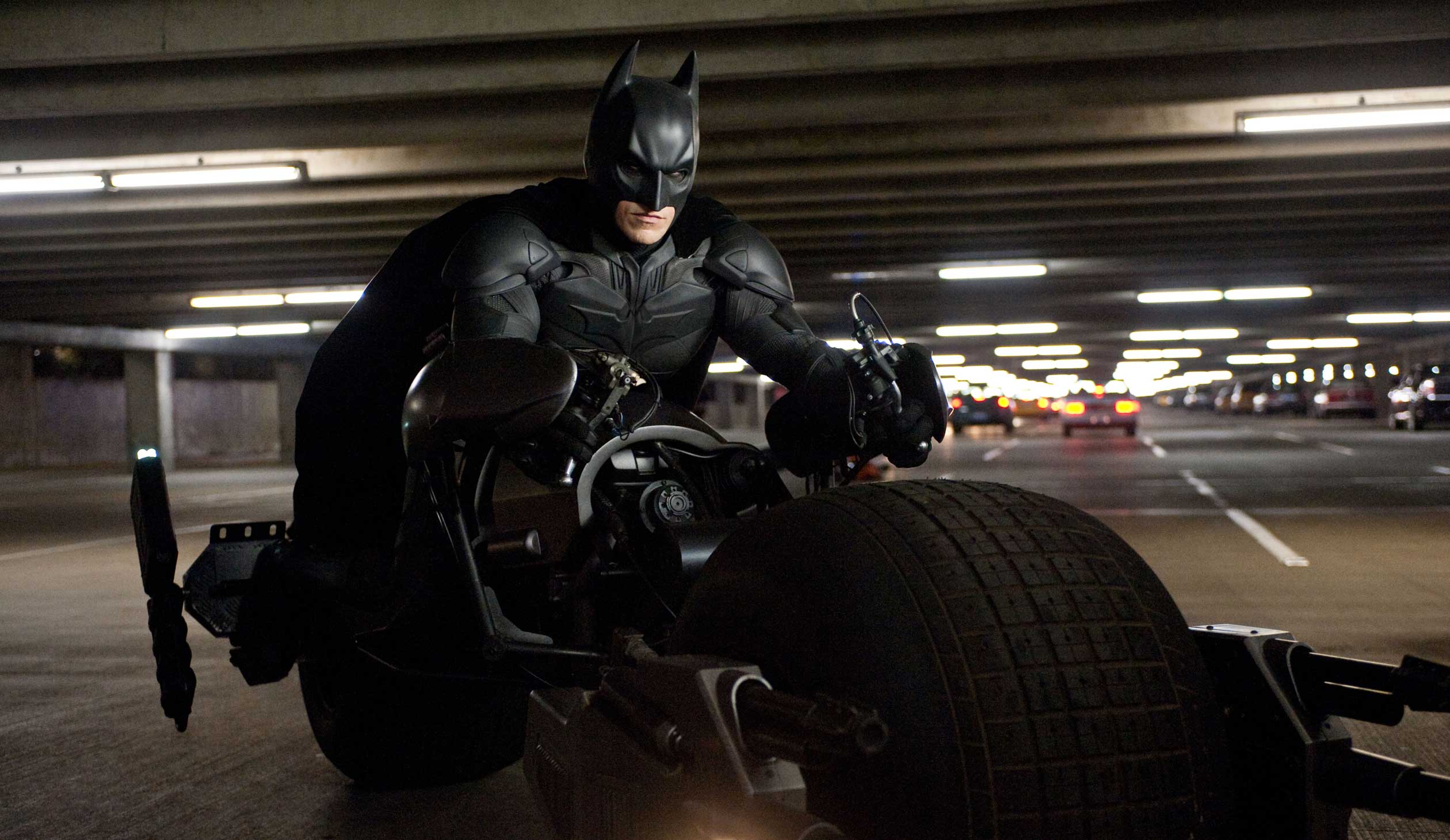
I’ll keep this last one short, because I have less to say about the third movie. I’ll credit The Dark Knight Rises for one thing: it made a decent effort to take back the awful message at the end of the second film. The lies that Gordon, Batman and Alfred had told all took their toll in this film and that at least showed that lying was never a good idea. The film also restored Batman to his rightful station: he is the hero of Gotham. I’m so happy they cut that whole nonsense of him being the “silent guardian, watchful protector, dark knight”, pretty much anything that sounds cool but not a hero.
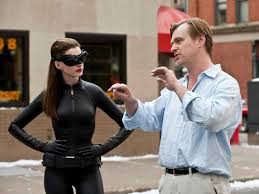 Unfortunately The Dark Knight Rises had one big problem: it was boring. I’m going to use a word I don’t like to use, but it was bloated. This movie could easily have cut thirty minutes and it would have been much more exciting. It featured far too much of those annoyingly clever little exchanges of dialogue that became popular when Casino Royale was released. The scenes between Bruce Wayne and Selina Kyle were pure torment as far as I’m concerned. Which is too bad, because I really liked Catwoman in this film. I also liked Bane as a villain. But again, good characters don’t make for a good story. The plotline was once again horribly convoluted and lacking in focus. It also didn’t bother to explain anything, like where Batman got that flying monstrosity from when he returned to Gotham at the end. Things just happened, and they happened so fast you just shrugged and assumed you missed the explanation.
Unfortunately The Dark Knight Rises had one big problem: it was boring. I’m going to use a word I don’t like to use, but it was bloated. This movie could easily have cut thirty minutes and it would have been much more exciting. It featured far too much of those annoyingly clever little exchanges of dialogue that became popular when Casino Royale was released. The scenes between Bruce Wayne and Selina Kyle were pure torment as far as I’m concerned. Which is too bad, because I really liked Catwoman in this film. I also liked Bane as a villain. But again, good characters don’t make for a good story. The plotline was once again horribly convoluted and lacking in focus. It also didn’t bother to explain anything, like where Batman got that flying monstrosity from when he returned to Gotham at the end. Things just happened, and they happened so fast you just shrugged and assumed you missed the explanation.
The atmosphere from the original movie was still completely gone, even more so than in The Dark Knight because this movie took place in bright daylight most of the time. It was tonally even more uneven, switching around between socio-political ruminations and campy superhero fights, with a bit of folklore and mythology thrown in for good measure. It didn’t have a clear identity and instead felt like it was written by three completely different people with very different interests and tastes. Some may like the contrast in that, but I found it jarring.
But at least The Dark Knight Rises offered a good finale, one that reminded us: “hey, this is a comic book movie”. It was big and heroic and over the top, and it was kind of cool. As a whole, though, this film was far too self-important and far too long and it ultimately just made me think: what if they had just stopped after Batman Begins? Wouldn’t that have been enough? Well, for me… Yes, it would have.

My god do I feel the same. Inconsistencies in The Dark Knight always bothered me. Now I can look over some minor plot holes for sure, but plot holes in TDK were anything but minor. Except for Ledger’s performance and on screen presence, The Joker never really felt terrifying or menacing, off screen. Audience was kept in the dark with the actual execution of all of his plans. Some situations like the penthouse scene where the joker throws Rachael off from the height, were so obviously broken that anyone could tell.